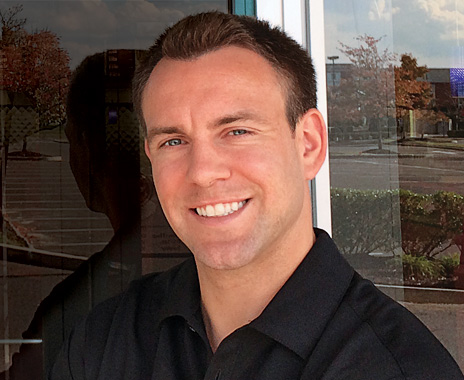Besides a few years of kitchen work during high school, Pancheros Mexican Grill franchisee James Kolzow had no background in the restaurant industry before joining the fast-casual Mexican brand. He attended the Air Force Academy in Colorado and graduated in 2004, after which he began working as a pilot in the military. A few years later, Kolzow fell in love with the Pancheros brand and product. He opened his first store in 2009 and now operates two Pancheros units in southern New Jersey, with a third on the way.
When he became a franchisee, Kolzow didn’t shirk his military obligations. Thanks to his work ethic and exceptional ability to prioritize and multitask, he even managed to earn a master’s degree from Oklahoma State in 2014 while juggling his two jobs.
Although his 10-year contract with the military expires later this year, Kolzow plans to continue with his multi-career approach even as the business grows. He hopes to grow his Pancheros footprint beyond New Jersey.
Kolzow explains how franchisees can tackle multiple duties at once—even when unexpected conflicts inevitably arise.
1. Schedule your schedule
Once you become a business owner, the work never stops, and it will change your life. Although the Air Force is demanding, I do go home eventually and can turn it off. On the other hand, I am always thinking about my small business. How can I be a better owner? How can I grow? How can I be more profitable and increase sales? The list goes on and on, and I’m always trying to improve. It’s not easy, but I have two extremely talented general managers and support staff. They really drive the concept with the daily operations.
When I took my first tour of Pancheros, I was floored at how basic the concept seemed to execute. We have six menu items, do not keep more than a couple thousand dollars’ worth of food on hand, and do not even have a dishwashing machine. All our food is made from the same core ingredients (peppers, onions, cilantro, and proteins) and made fresh daily. As a result, we do not have food waste or much of a back-of the-house operation. Food deliveries happen three to four times weekly, and then we prep and serve. While the concept seems simple, we take pride in our execution and attention to detail.
Since I have military obligations, I typically work on accounting, marketing, developmental and long-term goals, unit growth, and daily analysis of critical costs such as payroll and cost of goods. The beauty of my role as an owner is that I can work remotely on my time. I am not constrained by a schedule as I am sometimes in the military.
2. Battle through the toughness
It really is hard to do two things at a high level. I graduated from the Air Force Academy with an engineering/business undergraduate degree. I went on to be a pilot and still actively fly in the Air Force. I also finished a master’s of science in entrepreneurship from Oklahoma State in 2014. I believe that the “Jack of all trades, master of none” adage is really spot on.
I take an approach of numbering my priorities each week. I like to write things down and make lists. I try to start with the most important and work my way down. It also feels good to cross things off, and it helps me relax knowing that my tasks have been accomplished.
Surround yourself with the right people and form strategic partnerships. Your people are really the ones that make things happen. I try not to micromanage my top decision makers, and also tell them how important they are to the operation. Saying “thank you” and telling someone that they are important goes a long way.
3. Be prepared to wear many hats
I believe that anyone is capable of juggling multiple roles, especially if you are a small business owner and do not have a choice. When money is tight, the owner is normally the manager, accountant, CEO, CFO, and CMO. The key takeaway is that when the business is small, the owner can do it all. However, when the business reaches that point where it begins to grow, hiring key staff is going to be a requirement to maintain quality and growth.
Every day there are conflicts. When I have a requirement, I get after it immediately, because the minute I procrastinate, I may have something else pulling in a different direction. Being a pilot, I never know my flying schedule. When I do have a minute to breathe, I try to use the time to get all my franchise ownership requirements knocked out immediately.
Communication is so important. I try to tell my general managers when I am unavailable due to military obligations, but also provide them options if they need help. I have become extremely savvy with iMessage, FaceTime, Skype, conference calls, email, Google groups, Dropbox, and regular old phone calls. It is amazing how WiFi has really helped me become a better owner by increasing my ability to communicate with key staff.
This story originally appeared in QSR's August 2016 issue with the title "Double Duty."

